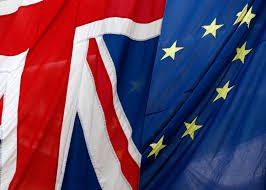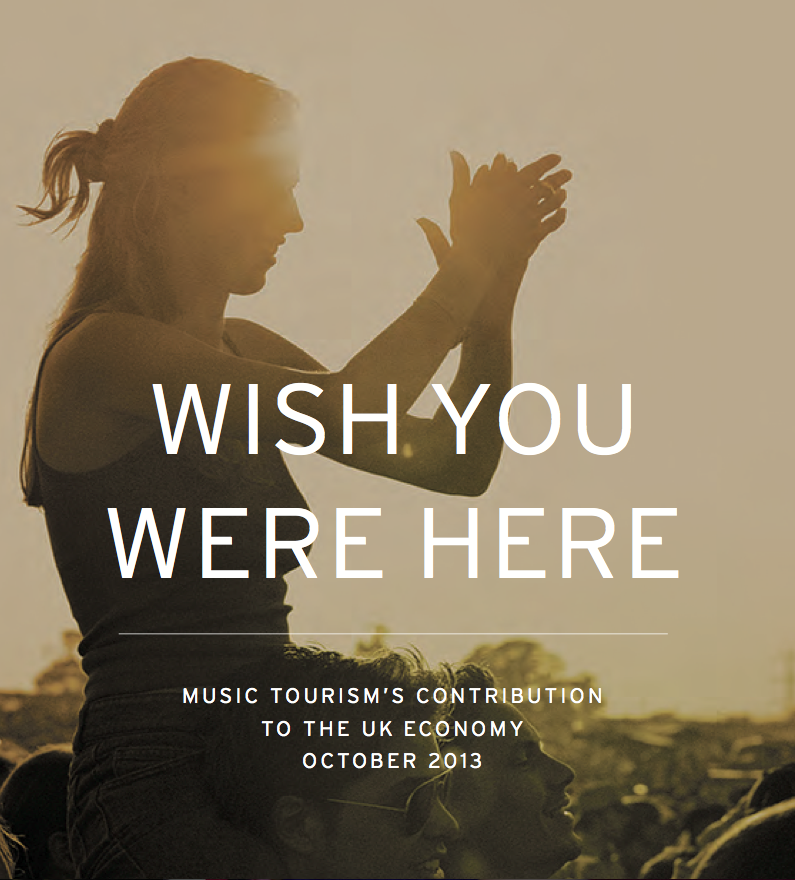Lord C-J says Ministers must ensure the multi-billion pound fashion industry industry is not put at risk
This is a piece I recently did for the House Magazine: ‘From fashion to furniture, Britain’s design sector relies on EU protections, writes Lord Clement-Jones’.
It was notable from her speech at the Mansion House earlier this month that the Prime Minister has woken up to the threat to our broadcasters of exit from the EU through loss of country of origin rules – the rules which have enabled the UK to operate as an international broadcasting hub.
The fact is, however, that this is but one of the many severe threats to our creative industries posed by Brexit.
The Prime Minister also needs to recognise the threat posed by Brexit to the design sector, which includes the fashion industry and furniture lighting and furnishings and many other design areas, from the potential loss of European unregistered design rights for United Kingdom-generated designs.
European design laws protect the individual character of a design, in particular as they relate to shape, texture, contours, lines, colour, ornamentation or materials. UK unregistered design right protects only the shape and configuration of a design.
Recently the Law Society made the news when it revealed that London Fashion Week is under serious threat from Brexit. They said it could lose its status as an event where new clothing creations are unveiled because laws that protect European fashion houses from unauthorised copying may no longer apply in London when Britain leaves the EU next year.
Fashion houses that first reveal an unregistered design on the London catwalk would be at risk from copies going on sale in the EU.
"As the majority in the industry are micro and SME design innovators with less than four employees they are particularly vulnerable to infringement of their designs."
— Lord Clement-Jones
In 2016 the value of UK fashion and textile exports stood at £9.1bn. The fashion industry, through the British Fashion Council, has highlighted the serious consequences for British fashion designers if they lose unregistered EU design rights protection in the other 27 member states. Potentially losing the protection currently available under EU law will leave these UK designers in a disadvantageous position versus their EU competitors.
These are typical but high profile examples of how designers across the board may be forced to launch new designs in EU countries after Brexit.
The potential impact to our economy is massive. UK design and design skills in the UK are currently worth a startling £209bn. This is put at risk if legal protection for design IP is weakened.
The reason for this is that copying is endemic not only in the fashion sector but in the lighting, furniture, furnishings, gift and product and many more design sectors, all of which will also be affected by loss of the EU unregistered design right. As the majority in the industry are micro and SME design innovators with less than four employees they are particularly vulnerable to infringement of their designs.
In the Lords this Thursday I will be seeking a firm assurance from the government that it will provide a solution to the potential loss of EU design rights in one of the fastest growing sectors in the economy. I will be calling on ministers to end this major threat to our design sector and introduce legislation which will offer the same EU unregistered IP rights’ protection as they now enjoy in 28 member states.
Unlike some other Brexit conundrums, in this case the solution lies in government’s hands and we and the design industry have every right to expect urgent action.
Brexit: Why Freedom of Movement Restrictions Will Impact on the Creative Industries
Here is a piece I wrote for the House Magazine recently.
Freedom of Movement and the Creative industries
Our creative industries are of ever growing importance to the UK economy quite apart from their cultural value. Worth £87bn to the UK economy, they are growing three times as fast as other sectors of the economy and account for nearly 2 million jobs. They have massively benefited from our membership of the EU.
As witnesses from the creative services sector recently underlined to the House of Lords EU Select Committee looking at the impact of Brexit on Non Financial Services, maintaining continued access to the EU’s labour market to address skills shortages and to support continued growth is vital.
The Creative industries Federation in their Brexit Report last autumn said: “Talent and skills are fundamental to the UK’s creative sucess. It is vital we continue to cultivate our own talent as well as to attract the best and brightest from around the world.”
The UK is a creative hub, the free movement of people to work and travel across Europe, without the need for visas, has both facilitated, and fuelled, the exchange of culture, creativity and expertise and generated commercial and artistic opportunities.
Without the right deal, the creative industries will face big challenges if restrictions are placed on the movement of talent and skills.
For example London is Europe’s hub for start-ups and first jobs in fashion. To further their careers fashion graduates need experience at a wide range of international fashion houses. A lot of people who work in fashion are not British and many students when they graduate get jobs abroad. The music industry, too, relies heavily on the movement of national and international talent.
Although overall 6.1% of Creative Industries workforce are EU (non-British) nationals, particular sectors are heavily represented. It is estimated that 25% of the VFX (visual effects in film) workforce is from the EU, up to 30% in gaming is made up of EU (non-British) nationals and 10% of the design, publishing and advertising workforce are EU (non-British) nationals.
Of course we should aspire to more home-grown talent –and Sir Peter Balzaghette’s review of industrial strategy for the creative industries should address this urgently to ensure that our education and training policies fully recognize the specific needs of the creative industries-but as it is there are currently 17 creative roles which are on the government’s Shortage Occupation List (allowing recruitment from outside the EEA) from orchestral musicians to graphic designers. This shortage list will increase following Brexit if freedom of movement is ended and adequate visa arrangements are not put in place.
On Brexit the ability to develop audiences by low cost touring within the EU, a significant earner for young talent, could end. One visa application for a non EU cultural organisation costs between £600 to £1,000. In line with the Arts Council sector survey of the arts and culture, the continued ability for people to move freely between the UK and EU for creative activities such as television and film production, concerts and fashion events is vital.
Our immigration system must continue to enable easy access to critical skills and talent from both EU and non-EU countries. Above all we must ensure as the Liberal Democrats insisted during the passing of the European Union (Notification of Withdrawal) Act, non-British EU citizens currently employed in the UK must have the right to stay.
Liberal Democrats have always been champions of creators and of their industries. The Government must listen to these strong concerns when Brexit negotiations begin.
Lord C-J Debates Rule of Law and the global role of English Law and Lawyers
In a recent debate on "the contribution of the legal systems of this country to the international standing of the United Kingdom and the observance of the rule of law in this country and abroad" I described the important role of the legal profession here and abroad..
http://www.publications.parliament.uk/pa/ld201415/ldhansrd/text/140710-0002.htm#14071063000808
As Lord Hodgson, said earlier in the debate, the rule of law in the English legal system is a major source of British influence abroad, as the recent report by the Select Committee on soft power of this House made very clear.
I had the great pleasure recently of participating with the noble and learned Lord, Lord Woolf, in a conference on the rule of law in Turkey, which was a very timely reminder in that country of the essential values inherent in the concept of rule of law, and I thank him for initiating this superb debate today. Many noble Lords have mentioned the fact that next year we are celebrating the 800th anniversary of Magna Carta through the Global Law Summit and other events. It is particularly important that we hand down this tradition to each new generation and that they are made aware of how precious it is.
The rule of law is not only a philosophical ideal and a bastion of individual rights. Our legal framework is critical to economic development, to the creation of jobs and to a successful market economy. A key factor is the integrity and independence of the judiciary and, as my noble friend Lord Marks said, London has become a world leader in dispute resolution. English legal practitioners are another reason for using English law. We have a long and well respected tradition of excellent legal services based on trust and performance. Huge effort over the past few years is beginning to result in a much more diverse profession, with commitment to the PRIME initiative by an alliance of law firms and legal departments across the United Kingdom to broaden access to the legal profession. Pro bono ethos and practice is much more embedded, too, within the legal profession. The noble Lord, Lord Livingston of Parkhead, in his first contribution to this House last December, confirmed his view that the legal services sector is one of the most important sectors for the UK. In fact, it employs almost 350,000 people. The noble Lord, Lord Pannick, referred to the fact that the rule of law is now one of Britain’s great exports; exports of legal services totalled more than £4 billion last year.
Our law and law firms are becoming ever more international to meet the needs of businesses. Law firms such as my own have responded by becoming international in their own outlook, establishing a global presence. There are close links between legal education, our laws and the legal sector. We attract students from all over the world. This needs to be nurtured. The coming decade promises to see increased competition as other cities such as Paris, New York and Hong Kong aspire to compete with London as a world leader in legal services.
We also face legislative threats such as the common European sales law being proposed by the European Commission as an EU civil law alternative to English common law. Protectionist regulations in growth markets such as India and a number of other emerging markets are, however, a major stumbling block, inhibiting the export of UK legal services and, indeed, opportunities for their own lawyers. The profession and the Government have, rightly, made persuading emerging markets to tear down their barriers to entry a key priority. Staring in 2011, the Ministry of Justice’s Plan for Growth set out the importance of English law and English legal services to the UK economy, and the need to open up overseas markets.
Our position in Europe is vital in achieving this goal. Another benefit from the EU is the freedom of establishment under the establishment directive. No wonder that, according to a recent CBI survey, two-thirds of law firms think that leaving the EU will have serious negative consequences. The challenges we face to ensure that the UK remains the world leader in the rule of law, in our standards of justice, in the provision of legal services and in the opportunities that exist in international jurisdictions are significant. However, we can meet them if we heed today’s warnings. I hope that we will be able to fulfil, as Ken Clarke said when he was Lord Chancellor, the UK ambition of becoming lawyer and adviser to the world.
Danny Tells the Lib Dems' Record on the Economy
Excellent speech from Danny Alexander the Chief secretary at the Lib Dem's Spring Conference in York. A Stronger Economy and a Fairer Society indeed.
http://www.libdems.org.uk/danny_alexander_s_speech_to_spring_conference
UK Music launches excellent new report on Music Tourism
UK Music have published an excellent report on Music tourism: Wish you Were Here
This follows their groundbreaking last report in 2011, Destination: Music—the Contribution of Music Festivals & Major Concerts to Tourism in the Uk
The main messages are:
We’ve uncovered a hidden gem. Music tourism has never been properly studied before.
Groundbreaking research. Unprecedented access to data – to give us the most comprehensive picture ever of live music and tourism.
Significance of music tourism to economy reaching highest levels – from Prime Minister to House of Lords debate to new partnerships with tourism authorities.
They are calling for an overarching music tourism strategy to maximise potential.
The Main Statistics are:
- UK Music counted 6.5 million music tourists in 2012.
- On average, 41% of the population at live music events is comprised of music tourists.
- Music tourism is generating £2.2 billion in spending overall.
- £1.3 billion of that is spent directly by music tourists themselves,
- Their presence stimulates a further £914 million in spending further down the supply chain.
- Music tourism is sustaining 24,251 jobs overall.
- 16,135 of those jobs exist as a direct result of music tourism
- a further 8,115 jobs were created further down the supply chain as a result of music tourism
- These are “full-time equivalent” jobs – so if there are two part-time jobs of 20 hours a week, or 4 seasonal jobs each lasting 3 months, we count them as one FT job.
- Music tourism contributes nearly a billion pounds (£934 million) to the nation’s wealth as measured by GDP
- 544 million as a direct result of music tourism
- A further £390 million as a result of economic activity further down the supply chain.
- Overseas music tourists comprised just 6% of the total music tourism population, but they accounted for 20% of total spending by music tourists. They’re like gold dust. Per capita, they each spend nearly a grand (£910) in the UK when they come here to attend music festivals, and nearly £400 (£396) when here to attend a gig. This includes spending at the live music event itself as well as what they spend over the course of their stay in the UK.
This is a great Report. It identifies the opportunities extremely well .
What we now need, as I said in Lord Storey’s debate in June, is for the Government to team up with VisitBritain,the Arts Council, the British Council the music industry, the tourism and hospitality industries and others to identify the “real levers and barriers” to growing music tourism at national level, in many cases red tape and do the necessary. We need a properly joined-up strategy, particularly in terms of reducing regulation





